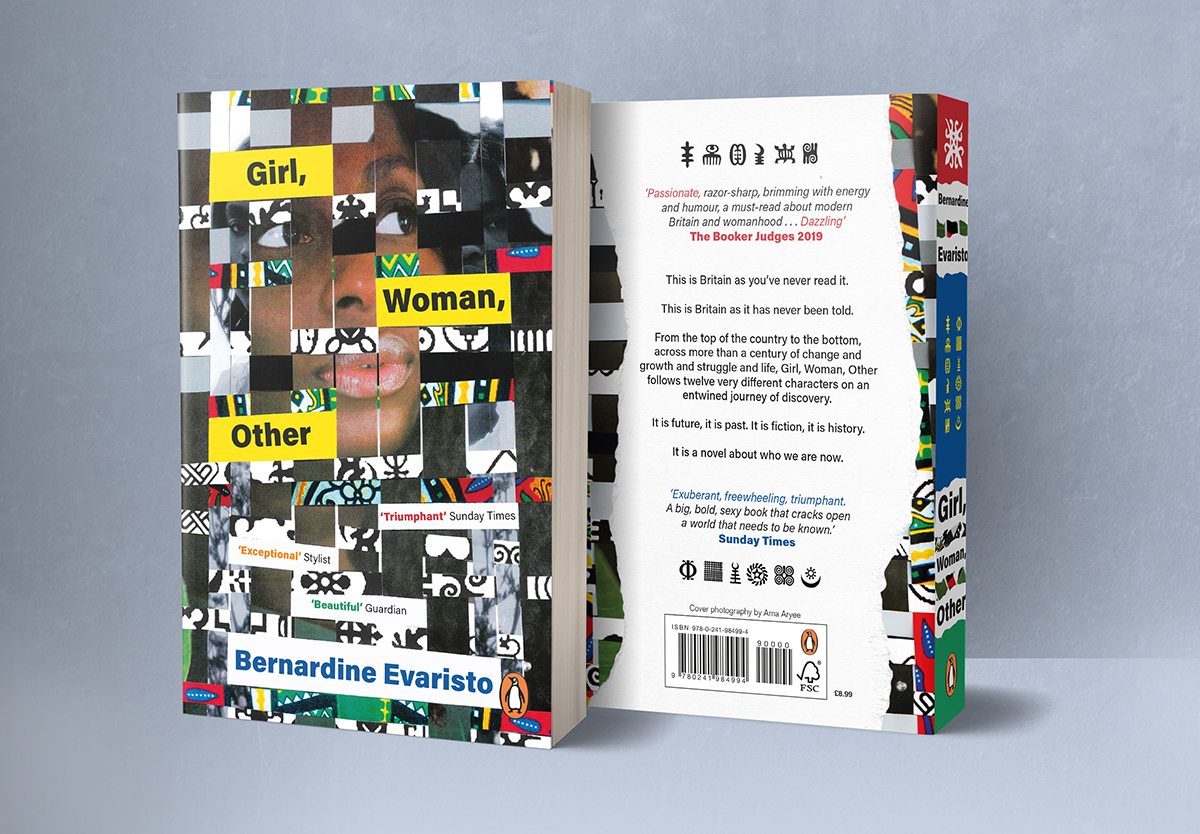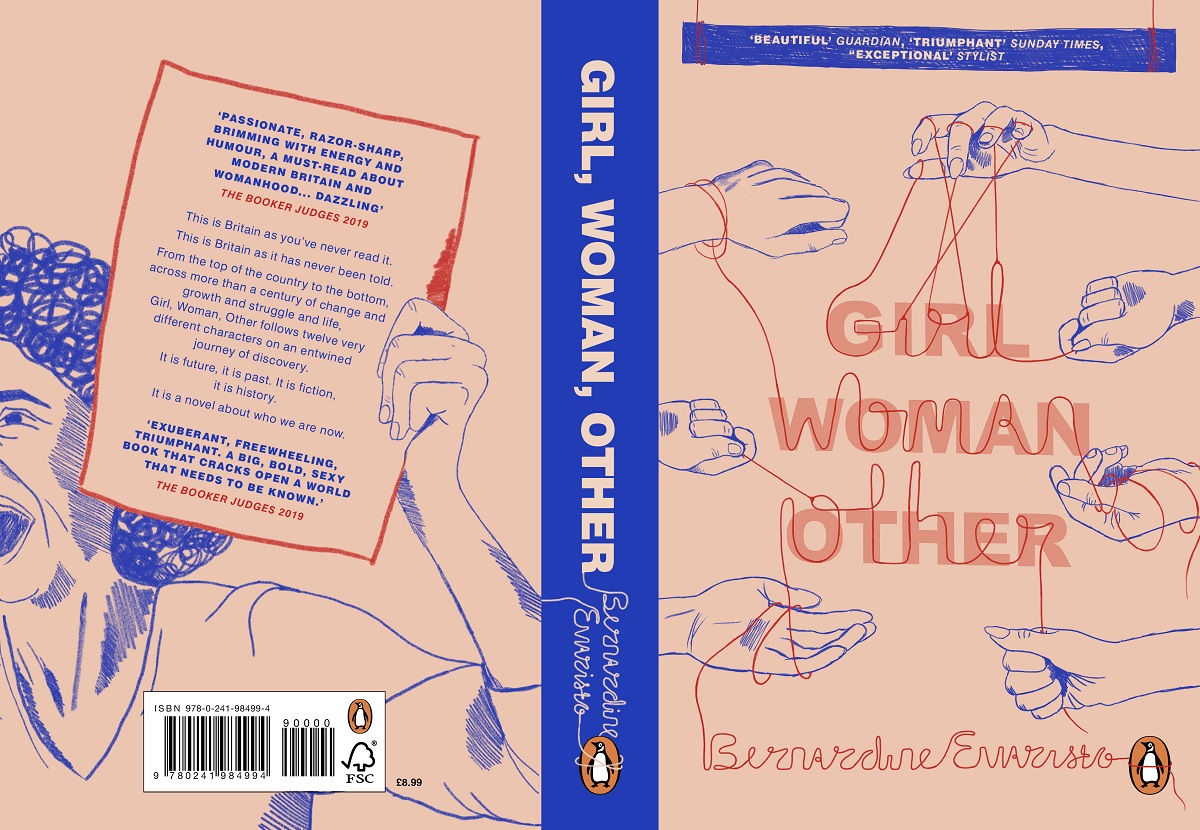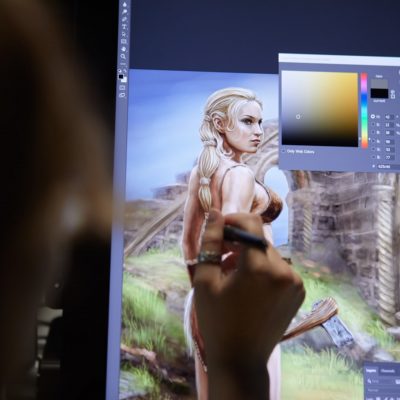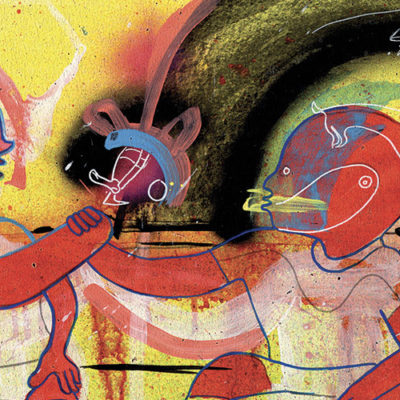
Alexis Taylor
Head of Art & Design
Faculty of Arts, Science and Technology
DiscoverGet in touch with us as we may be able to offer you a place for September 2024 through Clearing.
UCAS Code
BA: W210
BA with Foundation: W211
Level
UndergraduateUG
BA (Hons)Duration
Full Time: 3 years
Full Time Foundation: 4 years
Starting
September
BCC at A-Level or,
DMM at BTEC
Fees UK 24/25
Full Time: £9,250
Integrated Foundation Year: £9,250
Fees International 24/25
Full Time: £15,200
Integrated Foundation Year: £15,200
Location
For questions regarding study and admissions please contact us:
The University of Northampton’s Graphic Communication Design BA (Hons) explores the communication of ideas and messages to diverse and evolving audiences through a dynamic range of media that highlights the potential of what design can achieve.
Studio culture is at the heart of the Graphic Communication Design degree, naturally fostering the creativity, collaboration and debate that inspire personal perspectives on design. Students experiment with a range of traditional processes and emerging technologies to challenge established conventions of image-making and meaning.
Through engaging with real-world problems, social issues and commercial scenarios students develop critical, reflective and professional skills that will prepare them for the ever-changing creative industries.
We explore Graphic Communication Design through commercial, social, cultural, and environmental issues via a mix of practical work, critical study, live industry projects and design competition briefs. You’ll be taught in various ways including large and small group teaching, lectures, workshops and individual tutorials, group presentations and seminars, and we do this through a combination of face to face and online teaching, exploring digital media and software alongside craft skills such as print making, 3D and photography.
Updated 03/07/2024






At the heart of the University of Northampton’s Graphic Communication Design programme is the creation of visual ideas that convey a message – this could be to sell, entertain or solve a commercial problem, or to expand awareness and understanding of an issue, or to influence and persuade people to think about or see something in a different way.
We do this through considered, well researched and tested design solutions and use targeted technologies and channels to reach out and make a difference – the successful communication of a message is determined by its effective design; this is how we influence, create an emotion, and have impact.
Commercial – here we develop your technical skills, practice the principals of graphic design and apply these to commercial projects and briefs – this includes understanding how audiences think and respond, and how we approach and manage the design process to create effective solutions.
Experimental – here we encourage your individual responses to themes and issues that are not commercially focused – we challenge you to use your visual skills be used to convey complex and thought-provoking messages, and we develop your ability to see differently, think differently and explore different mediums and formats.
Changemaker – here we focus on Graphic Communication Design’s role as a force for positive change through projects that explore social, ethical and environmental concerns. You are encouraged to develop empathetic and mindful approaches using your creative skills for progress and transformation.
Professional and Critical – here we expose you to the wider creative industries, the various roles and skills needed to work as a professional designer and how the business of design works. Additionally, we explore the development of visual culture and how it’s affected us and our world, and how we and others see and understand the world around us. Along with this you develop your research abilities and your reflective and analytical writing skills.
When graduated our students go on to work in a wide range of creative roles; some go on to work in agencies, some work as freelancers, some start their own businesses, producing work across branding, advertising, illustration, editorial and publishing, film and moving image, interactive and online design, UX and UI, packaging and photography. Additionally, some go on to post graduate education to further enhance their skills and knowledge.
There is a wide range of career and post graduate options for you to explore, so throughout the 3 years on the course, we will help you to identify and focus in on what your skills and interests are. Through your modules and the teaching and support from your lecturers, by the end of your 3rd year you will have had the opportunity to work on a detailed career plan that will set you on your path.
Both the Penguin Cover Design and the D&AD The New Blood Awards are an invaluable introduction to the reality of working in the creative industry and gets your work seen by some of the biggest names in the creative industry. Students on the University of Northampton’s Graphic Communication Design BA (Hons) course have been regular winners over the many years.
Our students are regularly shortlisted listed for the Penguin Cover Design Award and this year was no different. We had two students shortlisted – Evy Diepenbroek and Karla Ayree for the Adult Fiction category, with Karla beating hundreds of fellow designers from across the country to win the prestigious national prize.
Karla was named winner of the prestigious awards ceremony in June for her cover design for ‘Girl, Women, Other’ by Bernardine Evaristo.

Evy Diepenbroek’s design was shortlisted for the same prize

See all winners and shortlisted designers here – Penguin Random House Design award.
We also had success in the D&AD New blood competition last year with our 2022 graduating student Laura Tucker winning a pencil for her Giff Gaff Recycling animation.
By completing certain core modules in your first, second and third year of the Graphic Communication Design degree, you will obtain the Northampton Employability Gold Award. This will be a reflection of how you have developed your employability during the course and mean that you qualify for the Northampton Promise. The Northampton Promise means that if you are unemployed twelve months after graduation the University will find you a paid three to six month internship.
Please note the modules shown here relate to the academic year 24/25. The modules relating to the academic year 25/26 will be available from June 2025.
Schedule
Your taught study will be a combination of lectures, seminars, workshops and technical demonstrations, usually for 15 hours per week, depending on your level of study. In addition, we recommend that you spend around 10 hours per week in self-directed study time. You will have access to technical facilities and studies outside of taught time.
A typical offer for Graphic Communication Design would be:
We welcome applications from students with a mix of A levels and BTEC/Cambridge Technical qualifications.
A Foundation Diploma in Art and Design will also be accepted.
Applicants are interviewed and are requested to provide a portfolio of their own work in Art and Design. International students may submit their portfolio electronically. Students with a relevant HND or Foundation Degree with a suitable profile of achievement may be admitted onto year two or three.
For more more information on how to make an application, please visit our How to Apply page.
If you are an International student and would like information on making an application, please see our How to Apply page.
Admission to this foundation programme is normally:
However, we would also like to hear from you if you have professional or industry experience instead, a range of other qualifications or self-developed subject knowledge that relates to the programme you wish to study.
Once your application has been reviewed, you may be invited to attend an interview with us.
Your interview for Graphic Communication Design could be held either on campus or online, and both interview styles would require you to show us some portfolio work, either physically or digitally.
For your portfolio, we’d like to see around 10 pieces of work that demonstrates your ideas and creativity across a range of formats, media and project types – this could include examples of logo design, branding, advertising, digital work, editorial, publishing, typography, photography, or illustrations. If you have any digital work, like web and app design, animation, or moving image, you can bring this along too either on a memory stick, bring your own laptop or provide weblinks.
We’d also like to see some sketchbook work examples too, so bring these along on the day, or include images in your online portfolio. Not all your examples need to be polished and finished, we’re happy to see works in progress as well as finalised projects!
Your interview will be with a member of the programme team and you’ll go over your portfolio with them. They’ll ask you some questions around your work and your interest in the course. This is also a great opportunity for you to ask them any questions you may have about the course.
Your interview will take around 30 minutes, and if you’re coming onto campus you’ll get a tour of the studios.
All International and EU students applying for a course with the University of Northampton must meet the following minimum English language requirements:
For information regarding English language requirements at the University, please see our IELTS page.
Fees quoted relate to study in the Academic Year 24/25 only and may be subject to inflationary increases in future years.
Materials, Events and Visits
Materials for workshops, entry to competitions associated with the Graphic Communication Design BA course, and those visits that are necessary for the course are all made available at no additional charge.
We recommend that you budget for additional printing costs (approximately £30 per year for laser and large format printing) and any specialist design materials that you may require (£50 or more depending on materials) per year.
There are optional trips, both within the UK and overseas: UK visits and Trips will cost approximately £50 per year. Overseas trips or visits will cost approximately £350 per trip
The 3rd year Degree Show held in the summer additionally requires contributions [or your own fund-raising activities] to support the funding of a catalogue and marketing materials costing approximately £20 each, along with further contributions to exhibit at the off-site Graduate Design shows in London, approximately £25 each.
As part of our Graphic Communication course, you will get a free subscription to the full Adobe Creative suite for the duration of your course and we have our own suite of MacBooks to use in our design studios and access to iMacs however, if able, buying your own Apple computer is recommended.
As you will expect on an Art and Design course, you’ll be expected to provide your own day to day art and design materials such as sketchbooks, pens, pencils, markers, rulers etc.
The University of Northampton has an onsite Art shop that can cater for all these needs and your staff team will talk you through what you will need prior to starting your course.
Fees quoted relate to study in the Academic Year 23/24 only and may be subject to inflationary increases in future years.
Materials, Events and Visits
Materials for workshops, entry to competitions associated with your programme of study, and those visits that are necessary for your course are all made available at no additional charge.
We recommend that you budget for additional printing costs (approximately £30 per year for laser and large format printing) and any specialist design materials that you may require (£50 or more depending on materials) per year.
There are optional trips, both within the UK and overseas: UK visits and Trips will cost approximately £50 per year. Overseas trips or visits will cost approximately £350 per trip
The 3rd year Degree Show held in the summer additionally requires contributions [or your own fund-raising activities] to support the funding of a catalogue and marketing materials costing approximately £20 each, along with further contributions to exhibit at the off-site Graduate Design shows in London, approximately £25 each.
As part of our course, you will get a free subscription to the full Adobe Creative suite for the duration of your course and we have our own suite of MacBooks to use in our design studios and access to iMacs however, if able, buying your own Apple computer is recommended.
As you will expect on an Art and Design course, you’ll be expected to provide your own day to day art and design materials such as sketchbooks, pens, pencils, markers, rulers etc.
We have an onsite Art shop that can cater for all these needs and your staff team will talk you through what you will need prior to starting your course.
For more information about possible funding options, please visit our Fees and Funding pages.
At the University of Northampton, everything we do, from funded trips to paid internships, is to give you everything you need to make a difference when you leave.
If you join this full time Graphic Communication Design degree at the University of Northampton, you will receive a laptop when your course begins*. The laptops are built to a bespoke custom specification ideal for use in the seminar room, collaborative group work or studying at home.
Whatever your ambitions, we’re here to help you to achieve them. We’ll support you to identify the skills you’re learning during your Graphic Communication Design BA, find your strengths and secure practical experience so that when it comes to applying for jobs or further study you’ll feel confident in standing out from the crowd. We’ve created the Northampton Employment Promise because we are so confident that if you focus on your studies and complete one of our awards you’ll be highly employable by the time you graduate. Putting you in a great position to secure employment or continue your studies.
To check out the full list of perks, visit our Student Perks page or dedicated International Perks page.
*UK fee payers only (see Terms and Conditions for further details).
The Integrated Foundation Year (IFY) offers a new and exciting route into studying for a degree at the University of Northampton, attracting ambitious and driven students who are willing to learn and advance.
If you have non-standard qualifications or do not quite meet the admissions requirements we can offer you a fantastic opportunity to study a four year programme which includes an Integrated Foundation Year. The Integrated Foundation Year will help you develop the theoretical/practical and academic skills you need, in order to successfully progress to the full award.
Our four-year courses will enable you to successfully follow the degree pathway of your choice while gaining essential study skills. The foundation year of your chosen degree will be studied on a full-time basis and is aimed at supporting the transition to higher education. Years two, three and four are then studied as a standard degree programme.
You will be taught on the Graphic Communication Degree through a variety of methods such as;
You will be taught by your core team of Senior Lecturers, Lecturers and Associate Lecturers – and you have contact with them week in, week out. It is these lecturers that deliver the majority of your taught experience, set project briefs, assess your work and lead study visits.
You will be assessed through a range of graphic communication design assignments, design competitions and live projects [producing individual work as well as working in groups] including design work submitted through portfolio presentations [this maybe printed, digital, online or physical], oral presentations and pitches, written work and self-assessments.
Yes, we suggest looking up the following titles for some inspiration:
Books:
Magazines:
Web:
Congratulations to our final year students for winning prestigious prizes at the 2023 D&AD New Blood Awards and the 2023 New Designer Awards!Final Year students Carrie Slinn, Cara King and Ellie Lines won the prestigious Yellow Pencil at this year’s D&AD New Blood awards ceremony. The group were awarded the highest winning prize for the eBay brief with their ‘Stackd’ stock market styled app solution.Final Year student Tab Dudley won the top prize at the ‘New Designers’ exhibition. Tab’s 220 page graphic art self-help book won the highest accolade at this year’s event!
Head of Art & Design
Faculty of Arts, Science and Technology
DiscoverSenior Lecturer - Graphics & Illustration
Faculty of Arts, Science and Technology
DiscoverSenior Lecturer in Graphic Communication Design
Graphic Communication Design BA (Hons)
DiscoverSenior Lecturer in Graphic Communication Design
Faculty of Arts, Science and Technology
DiscoverA Graphic Communication Design BA degree can open up your career options. You will not be limited to one specific type of role, but rather be able to pursue numerous career paths. Our Graphic Communication Design graduates use their design skills to work in:
Throughout your time on the course, as well as post-study, we offer support to ensure you receive the guidance and information needed to succeed in your field of work.
The University of Northampton’s master’s courses are a great way to enhance the skills you have already learnt. Benefit from our 20% alumni discount on master’s fees to give yourself a CV that will catch the eye of employers.
Every year the Graphic Communication Design team invite guest speakers, industry professionals and creatives into our studios to talk to our design students. In recent years we have had Adrian Shaughnessy, Ken Garland, Alan Moore, Jonathan Barnbrook and Malcolm Garrett to name but a few, along with practical workshops and Industry led portfolios reviews. We also invite our past students to talk about their current jobs and life after university.
When you study Graphic Communication Design at the University of Northampton, you will enjoy access to a number of different facilities and services to help you in your studies, including;
Our onsite printmaking workshop can enhance the creative practices of students on a variety of courses
Discover
Our Games Art course is an introduction to the creative aspects of the gaming industry, giving you experience of the key points in the creative process.

This course will help you to develop a range of illustration and design skills including drawing, painting, industry software for print and moving image, design and 3D.

